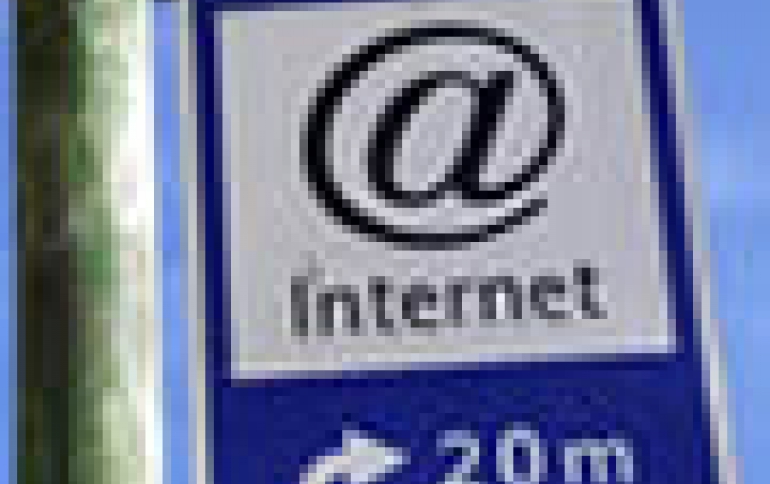
New EU Law Precludes ISPs To Be Forced to Monitor P2P Users
A new EU law precludes the imposition of an injunction by a national court which requires an internet service provider (ISP) to install a filtering system with a view to preventing the illegal downloading of files.
This is part of a decision of the EU Court of Justice (ECJ), which issued its verdict in a case involving Belgian music royalty collecting society SABAM and Belgian internet service provider Scarlet Extended SA.
In 2004, SABAM established that users of Scarlet's services were downloading works in SABAM's catalogue from the internet, without authorisation and without paying royalties, by means of peer-to-peer networks. Upon application by SABAM, the President of the Tribunal de premiere instance de Bruxelles (Brussels Court of First Instance, Belgium) ordered Scarlet, in its capacity as an internet service provider, on pain of a periodic penalty, to bring those copyright infringements to an end by making it impossible for its customers to send or receive in any way electronic files containing a musical work in SABAM's repertoire by means of peer-to-peer software.
Scarlet appealed to the Cour d'appel de Bruxelles (Brussels Court of Appeal), claiming that the injunction failed to comply with EU law because it imposed on Scarlet, de facto, a general obligation to monitor communications on its network, something which was incompatible with the Directive on electronic commerce and with fundamental rights. In that context, the Cour d'appel asked the EU Court of Justice whether EU law permitted member states to authorise a national court to order an internet service provider to install a system for filtering all electronic communications in order to identify illegal file downloads.
In its judgment delivered today, the Eurpean Court points out, first of all, that holders of intellectual-property rights may apply for an injunction against intermediaries, such as internet service providers, whose services are being used by a third party to infringe their rights. The rules for the operation of injunctions are a matter for national law. However, those national rules must respect the limitations arising from European Union law, such as, in particular, the prohibition laid down in the E-Commerce Directive on electronic commerce under which national authorities "must not adopt measures which would require an internet service provider to carry out general monitoring of the information that it transmits on its network."
In this regard, the court found that the injunction in question would require Scarlet to actively monitor all the data relating to each of its customers in order to prevent any infringement of intellectual-property rights. "It follows that the injunction would impose general monitoring, something which is incompatible with the E-Commerce Directive. Moreover, such an injunction would not respect the applicable fundamental rights," the court said.
The court added that the effects of the injunction would not be limited to Scarlet, as the filtering system would also be liable to infringe the fundamental rights of its customers, namely their right to protection of their personal data and their right to receive or impart information, which are rights safeguarded by the Charter of Fundamental Rights of the EU.
"It is common ground, first, that the injunction would involve a systematic analysis of all content and the collection and identification of users' IP addresses from which unlawful content on the network is sent. Those addresses are protected personal data. Secondly, the injunction could potentially undermine freedom of information since that system might not distinguish adequately between unlawful content and lawful content, with the result that its introduction could lead to the blocking of lawful communications.
"The court's reply is that EU law precludes an injunction made against an internet service provider requiring it to install a system for filtering all electronic communications passing via its services which applies indiscriminately to all its customers, as a preventive measure, exclusively at its expense, and for an unlimited period," the court concluded.
In 2004, SABAM established that users of Scarlet's services were downloading works in SABAM's catalogue from the internet, without authorisation and without paying royalties, by means of peer-to-peer networks. Upon application by SABAM, the President of the Tribunal de premiere instance de Bruxelles (Brussels Court of First Instance, Belgium) ordered Scarlet, in its capacity as an internet service provider, on pain of a periodic penalty, to bring those copyright infringements to an end by making it impossible for its customers to send or receive in any way electronic files containing a musical work in SABAM's repertoire by means of peer-to-peer software.
Scarlet appealed to the Cour d'appel de Bruxelles (Brussels Court of Appeal), claiming that the injunction failed to comply with EU law because it imposed on Scarlet, de facto, a general obligation to monitor communications on its network, something which was incompatible with the Directive on electronic commerce and with fundamental rights. In that context, the Cour d'appel asked the EU Court of Justice whether EU law permitted member states to authorise a national court to order an internet service provider to install a system for filtering all electronic communications in order to identify illegal file downloads.
In its judgment delivered today, the Eurpean Court points out, first of all, that holders of intellectual-property rights may apply for an injunction against intermediaries, such as internet service providers, whose services are being used by a third party to infringe their rights. The rules for the operation of injunctions are a matter for national law. However, those national rules must respect the limitations arising from European Union law, such as, in particular, the prohibition laid down in the E-Commerce Directive on electronic commerce under which national authorities "must not adopt measures which would require an internet service provider to carry out general monitoring of the information that it transmits on its network."
In this regard, the court found that the injunction in question would require Scarlet to actively monitor all the data relating to each of its customers in order to prevent any infringement of intellectual-property rights. "It follows that the injunction would impose general monitoring, something which is incompatible with the E-Commerce Directive. Moreover, such an injunction would not respect the applicable fundamental rights," the court said.
The court added that the effects of the injunction would not be limited to Scarlet, as the filtering system would also be liable to infringe the fundamental rights of its customers, namely their right to protection of their personal data and their right to receive or impart information, which are rights safeguarded by the Charter of Fundamental Rights of the EU.
"It is common ground, first, that the injunction would involve a systematic analysis of all content and the collection and identification of users' IP addresses from which unlawful content on the network is sent. Those addresses are protected personal data. Secondly, the injunction could potentially undermine freedom of information since that system might not distinguish adequately between unlawful content and lawful content, with the result that its introduction could lead to the blocking of lawful communications.
"The court's reply is that EU law precludes an injunction made against an internet service provider requiring it to install a system for filtering all electronic communications passing via its services which applies indiscriminately to all its customers, as a preventive measure, exclusively at its expense, and for an unlimited period," the court concluded.





















